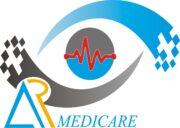Medical retina (including macular degeneration and diabetic eye disease)
This service deals with conditions affecting the photographic film at the back of the eye, called the retina and the central part of the retina (which gives detailed vision) called the macula.
These conditions might need treatment using eye drops, medications, injections, or laser.
We look after patients suffering from a range of retinal disorders, including:
- Diabetic retinopathy and maculopathy, also known as diabetic eye disease
- Uveitis, a form of eye inflammation
- Macular degeneration, a condition which causes distorted, blurred or loss of vision
- Inherited retinal dystrophies, a group of rare eye disorders
- Retinal vascular conditions, a group of conditions affecting the blood flow to the retina
You'll probably come to our outpatient department for one of our regular clinics.
On arrival you should report to the reception desk and then wait for one of our team. It's likely that you'll need to have a vision test, carried out by one of our nurses.
A vision test is undertaken on all appointments. It consists of you reading a chart of letters, giving us a record of your distance vision.
Depending on your eye condition, the nurse might do other tests. Generally, all patients will need an OCT scan, which is a safe and painless scan of the retina that only takes a few seconds and gives the team detailed information about the different layers of the retina. They might also need to use eye drops to dilate your pupil (make the black part in the centre of your eye bigger), so that we can get a better view of the back of the eye. These drops can take 10-20 minutes to work, and will blur your vision and make you more sensitive to light for a few hours.
We recommend that you do not drive for around 4-6 hours after receiving drops to enlarge your pupils. It is important to arrange for someone to drive you home. You may also want help if you are coming by public transport - we advise this for anyone coming here for the first time, but you may feel comfortable to use public transport alone depending on how you personally manage with your vision after having the drops. We also recommend bringing sunglasses and a sunhat or peaked cap.
Treatment will vary, depending on your diagnosis and some conditions require ongoing treatment or monitoring. Sometimes further tests such as a Fluorescein Angiogram may be required to confirm your diagnosis. This will usually be carried out at a later date, and the procedure explained to you if it is required.
There are a variety of treatments available depending on the exact nature of your condition. Eye drops or laser are used for certain conditions.
For some, medical retina problems, intravitreal injections (injections into the eye) may be required. These injections are done with a very fine needle after local anaesthetic drops have been given. This is performed in a dedicated injection room close to outpatients. These injections may need to be repeated to sustain the beneficial effect.
Mr James Benzimra
Mr Daniel Byles
5-km Darkhana Road, Plot C, Kamay Shah PirMahal ( T.T. Singh Punjab).
If you have any questions regarding your operation, please contact us on 03001363515. They are available 9am-5pm, Monday to Saturday.
At AR Medicare Multi-Specialty Hospital, the receptionists will guide you. Phone enquiries should be directed as above.
Some clinics and injections are also provided at a number of community hospitals. If you wish to be seen closer to home, please ask your doctor if this is appropriate, as where you can be seen may depend on the nature of your condition.
